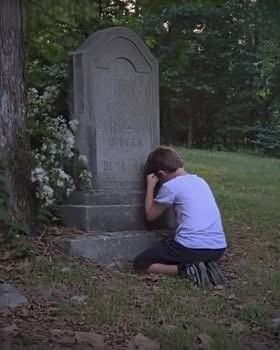
Stuart was only five when the linoleum floors of the children’s shelter became his world. He clung to a worn teddy bear, its fur matted and faded, a small shield against the rejection he believed was inevitable. Laughter and joy surrounded him, but it felt like a distant echo. Stuart had already decided he was “unwanted.”
He had watched countless couples walk through the shelter doors, their faces full of promise, only to leave without him. It wasn’t long before he stopped hoping, building walls around his heart to guard against disappointment.
One day, a woman named Jennifer appeared. She stood quietly in the doorway, her gaze soft and warm. Her life had been a series of challenges, yet something about Stuart stirred something deep within her—a desire to love and heal the wounded boy who sat clutching his bear, avoiding her gaze.
Hi there,” she said gently, crouching to his level.
Stuart glanced at her warily, his voice small but defiant. “Are you just going to leave too?”
Jennifer’s heart broke. “No, sweetie. I’m here to stay.”
Stuart’s walls didn’t crumble easily, but Jennifer persisted. She filled their new home with warmth, creating a haven where love could grow. But Stuart, now her adopted son, refused to let her in. He wouldn’t call her “Mom” and often reminded her she wasn’t his “real mother.”
Jennifer never wavered. Through tantrums, harsh words, and rejection, she continued to love him unconditionally. But as Stuart grew older, his walls only seemed to grow taller.
When Stuart was 13, Jennifer received devastating news: she had terminal cancer. She spent her final days preparing Stuart for a life without her. She wrote him letters, compiled instructions, and poured her love into small acts of care.
But Stuart refused to listen. The fear of losing her only hardened his heart further.
A month later, Jennifer was gone. At her funeral, Stuart stood stoically as tears flowed freely around him. He couldn’t cry, couldn’t feel. The world felt as cold and empty as it had in the shelter.
Nine days after the funeral, Jennifer’s best friend, Carol, approached Stuart with a quiet urgency. “Your mom left something for you,” she said. “It’s waiting at her grave.”
Stuart hesitated but eventually made his way to the cemetery. There, on Jennifer’s tombstone, was an envelope with his name written in her familiar handwriting. His hands trembled as he opened it and began to read.
The letter revealed a truth Stuart never imagined: Jennifer wasn’t just his adoptive mother. She was his biological mother.
She had been a scared, pregnant teenager when she left him at the shelter, believing it was the only way to give him a better life. Years later, she had worked tirelessly to bring him home, hiding the truth to avoid reopening his wounds.
Tears streamed down Stuart’s face as he read her final words:
“I loved you before you were born. I loved you through every harsh word. And I love you still, from beyond. Please forgive me. Your mother, Jennifer.”
Stuart collapsed onto the gravestone, clutching the letter. “I’m sorry, Mom,” he sobbed. “I’m so sorry. I didn’t know.”
The wind seemed to wrap around him, as if Jennifer herself was embracing him. For the first time, Stuart allowed his walls to fall. The love he had resisted for so long finally broke through, filling the void that had defined his young life.
From that day on, Stuart visited Jennifer’s grave regularly, not out of obligation, but out of love. Her letter had given him the closure he never knew he needed, and her unconditional love became the foundation for a life he would rebuild—one rooted in the love of a mother who never stopped fighting for him.
